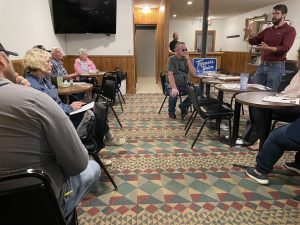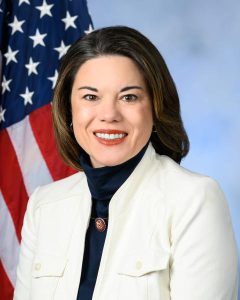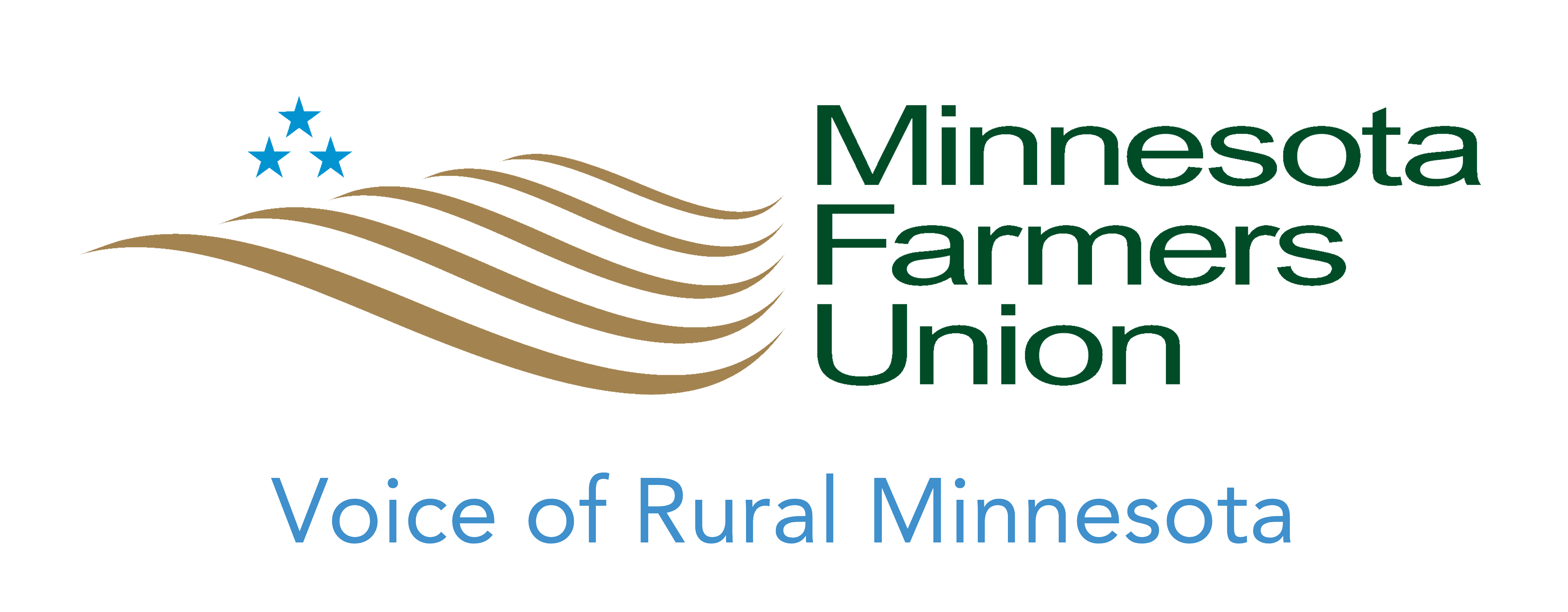Legislative Update: With session over, focus turns to farm bill
The Minnesota state legislative session ended on Monday, May 22, completing a deal to fund state government for the next two years. You can read about how the session wrapped up in past e-news updates. And be sure to note and share MFU’s legislative summary.

MFU members gathered in Oronoco for a legislative recap on June 12.
Now that the legislature has completed their work, focus at the state level will turn toward agencies as they work to implement the instructions outlined in law. Some policies—like protection from the grain indemnity fund—will automatically go into effect at the start of the new fiscal year on July 1. Others will require agencies to hire new staff, make decisions about program design, determine timelines, and otherwise make decisions about how new policies and programs will be put into practice. This is where the rubber hits the road.

MFU Government Relations Director Stu Lourey speaks at a legislative recap meeting in Mantorville.
It’s important for MFU members to stay engaged throughout the process, ensuring that state government works for farmers. Watch for opportunities to inform implementation and otherwise provide feedback to agencies. You can sign up for specific updates from the Minnesota Department of Agriculture here.
Another good way to help implement policy—and otherwise inform agency decision-making—is to serve on an appointed board or commission. You can find open positions, including on the Workforce Development Board, AGREETT, the Racing Commission, and others on the Secretary of State’s website.
Product of USA labeling
On the federal level, agencies often solicit feedback via the Federal Register. This week, NFU is doing a final push to make sure members are weighing in on the “Product of USA” labeling rule ahead of USDA’s deadline on June 11.
In March, USDA released a proposed rule outlining new requirements that better align with consumers’ interpretation of the “Product of USA” claim, which Secretary Vilsack announced during NFU’s convention in San Francisco.
The proposed rule on “Product of USA” labeling seeks to address this problem by permitting voluntary “Product of USA” or “Made in the USA” labels only for products derived from animals born, raised, slaughtered and processed in the United States. While this label is no substitute for mandatory country-of-origin (COOL) labeling, it is an important improvement to the current voluntary standards.
Debt ceiling deal
Also, on the federal level, all eyes have been on the debt ceiling in recent weeks. At the end of last month Congress and the president reached a deal to raise the debt limit and avert default.
On May 28, President Biden and House Speaker McCarthy announced an agreement to resolve the months-long impasse over the impending debt ceiling. On Jan. 19, the U.S. officially hit the debt ceiling, which prevents the federal government from borrowing money to pay down existing debt. Treasury Secretary Janet Yellen announced “extraordinary measures” to enable the federal government to continue paying its financial obligations but warned such measures would be exhausted by June 1 – which was later amended to June 5, providing negotiators a few more days’ time to finalize the agreement.
The agreement provides a roadmap for federal spending for the next decade, with two years of hard spending caps, followed by four years of non-binding spending targets. In exchange for suspending the debt limit until January 2025, the deal freezes fiscal year (FY) 2024 federal spending at FY 2023 levels, and caps FY 2025 spending levels at 1 percent growth. The deal rescinds unspent Covid-relief funds as well as unspent funds in other areas. The deal also imposes and expands existing work requirements for certain recipients of SNAP and TANF programs. The Washington Post has provided a very helpful run-down detailing the changes and potential impacts of the new rules. Democrats were able to keep the climate and clean energy spending provisions and tax credits in the Inflation Reduction Act largely intact, as well as much of the $80 billion to revamp IRS enforcement.
Wednesday afternoon, the House passed the package by a vote of 314 to 117. Only 149 Republicans voted “aye” on final passage, while 165 Democrats voted in favor. The factions of each party that voted no include the progressive wing of the Democratic party – citing concerns over the new eligibility restrictions on SNAP – and the House Freedom Caucus – the most conservative wing of the GOP. Their concerns range from the absence of hard spending caps beyond 2025 as well as the $80 billion dedicated to the IRS.
Shortly following House passage, Senate Majority Leader Chuck Schumer and Minority Leader Mitch McConnell signaled they wanted to move quickly. Late Thursday evening, the Senate passed the bill by a vote of 63-36. Like the House, several progressive Democratic senators and conservative Republican senators opposed the bill.
It now heads to President Biden’s desk for enactment, averting a catastrophic default with just days to spare. The $31.4 trillion debt ceiling has been suspended until January 2025, and cuts federal spending by $1.5 trillion over the next decade.
“We have worked so hard to get our economy back on track and we can’t risk going backwards by defaulting on the full faith and credit of the United States,” said Minnesota’s senior senator, Amy Klobuchar, D-Minn., in a statement following passage. “A default would be catastrophic for all Americans, which is why I voted to pass the bipartisan budget agreement which will fully fund veterans’ healthcare, protect Social Security and Medicare and lower the deficit. I’ll keep working with my colleagues on both sides of the aisle to ensure our nation stays on strong financial footing.”

Sen. Amy Klobuchar
Many observers looked to the debt ceiling standoff as an indicator for the farm bill process – and the results are muddled. The debt ceiling deal resulted in mixed feelings among Republicans and Democrats alike. Even with increases in work requirements for certain SNAP recipients, new exemptions for veterans, homeless individuals and families, and young adults who recently left foster care, it will result in a net increase in SNAP spending, per the Congressional Budget Office.
As far as further debates on SNAP work requirements in the farm bill, Chairwoman Stabenow made it clear where she stands:
“As far as I’m concerned, the issue of work requirements is settled for this Congress,” she tweeted Thursday evening.
Other funding considerations are also complicating the farm bill situation. Rescissions of funding that were authorized but not yet spent will cut about $3.2 billion from USDA programs. This includes nearly $400 million from the Dairy Donation Program, which likely could have been repurposed for the farm bill. However, Inflation Reduction Act funding for USDA was not cut nor redirected through the debt ceiling deal.
Farmer mental health
Outside of the debt limit, NFU endorsed a bill to increase resources to address farm stress and improve rural mental health. The Farmers First Act of 2023 was introduced by Sens. Tammy Baldwin, D-Wis., and Joni Ernst, R-Iowa, and cosponsored by Sen. Tina Smith, D-Minn.

Sen. Tina Smith
The Farmers First Act reauthorizes the Farm and Ranch Stress Assistance Network (FRSAN) and increases annual funding from the current level of $10 million to $15 million, for Fiscal Years 2024-2028. FRSAN funds entities such as state departments of agriculture, extension services and non-profit organizations to help connect farmers, ranchers, farmworkers and their families with stress assistance and mental health services. Services provided include telephone hotlines and websites, farm stress trainings, support groups and outreach services. FRSAN is essential for serving populations where the need is great, and resources are limited.
You can learn more about FRSAN here. NFU’s full statement can be found here.
Broadband funding
Rep. Angie Craig, D-2nd District, celebrated committee passage of her bipartisan broadband legislation that would streamline the deployment of broadband services on federal land, including the 3.4 million acres in Minnesota.

Rep. Angie Craig
“In the 21st century, we should be doing everything we can to connect Minnesotans with the high-speed internet they need – and my bipartisan bill will help get us there,” she said as the bill headed to the floor.
Federal updates are from the team at National Farmers Union—you can sign up to receive emails from NFU here. As always, if you have questions, concerns, or comments about MFU’s legislative work, please reach out to stu@mfu.org or (320) 232-3047 (C).
